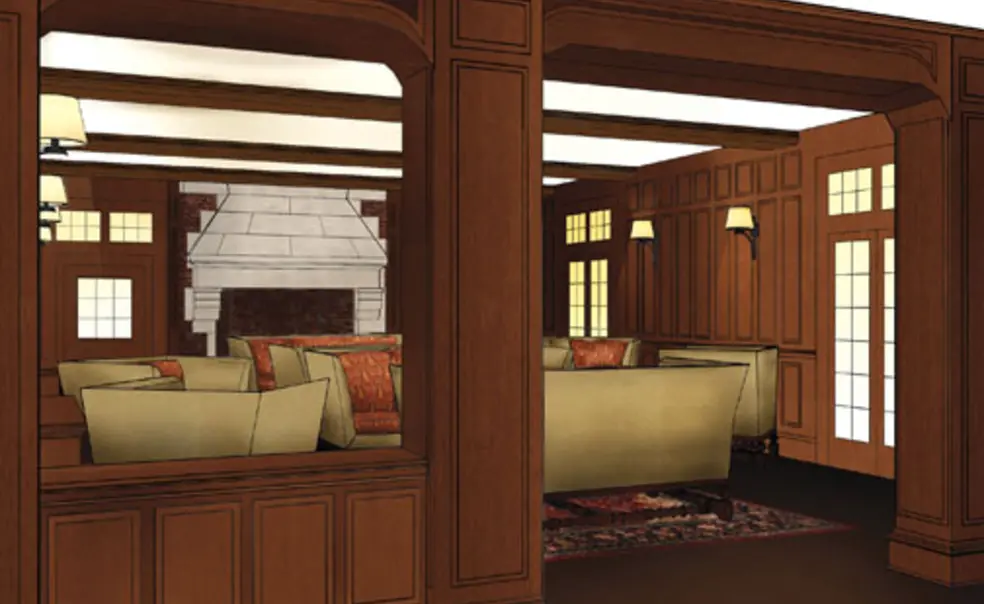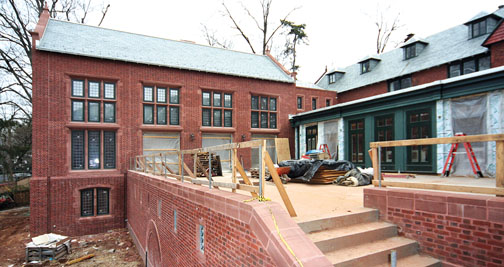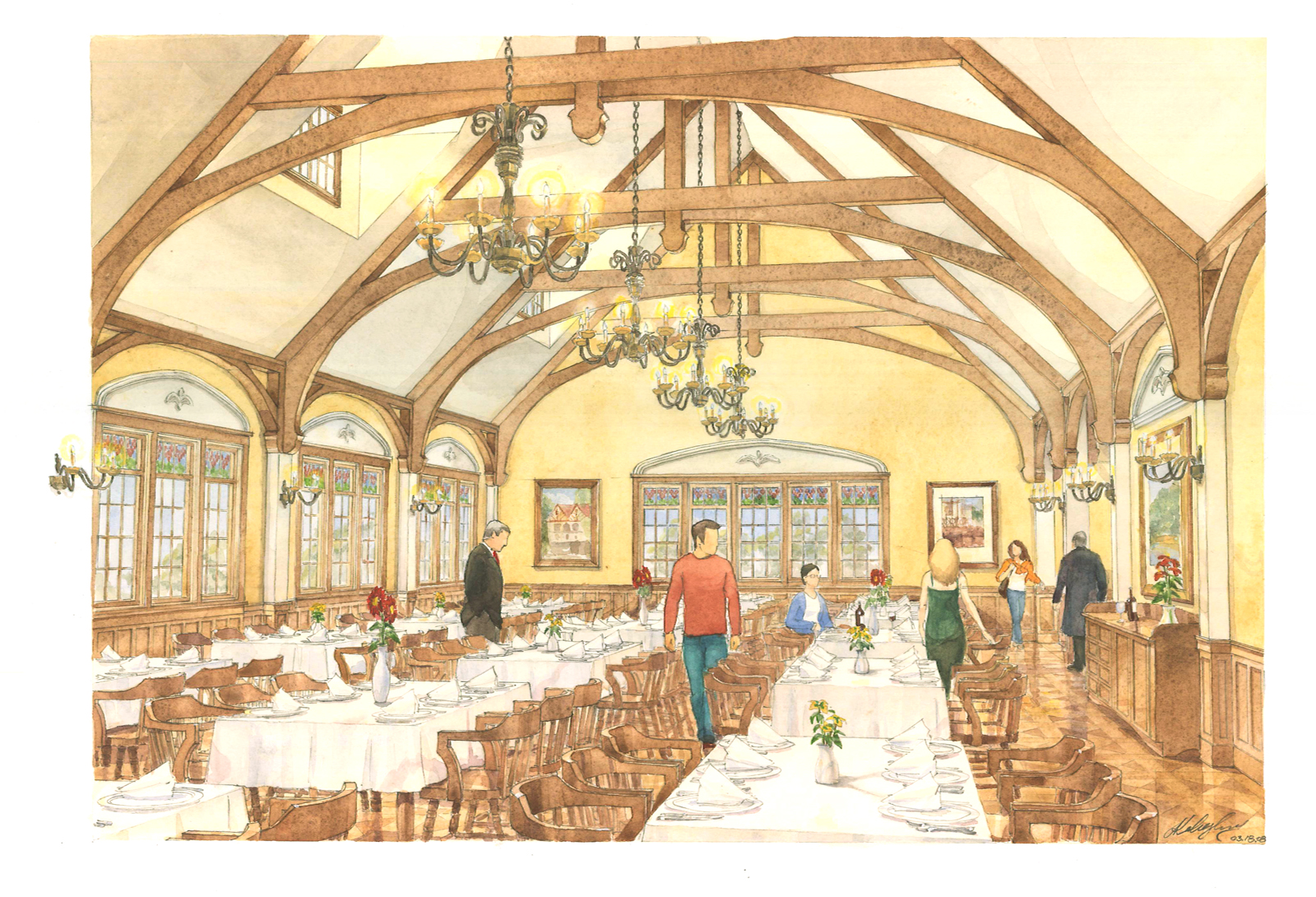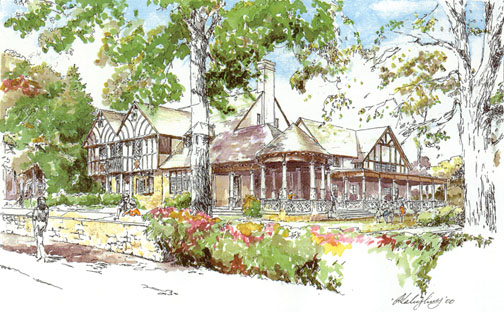Downturn slows some renovations at eating clubs
(A correction has been appended to the end of this article.)
The economic crisis on Wall Street has delayed and shuttered building projects on Main Streets across America, but what of Prospect Avenue?
While the University announced in November a decision to cut $300 million from its decade-long, $3.9 billion capital plan, the work already under way at two former eating clubs now owned by the University was not affected.
The CAMPUS CLUB building, donated to the University in 2006, is expected to open later this spring or in the fall as a community space for all Princeton students. The renovations are designed to create spaces that will support a variety of informal and formal events, and the interior will include a renovated dining room, living room, meeting room, and basement complete with a lounge.
Though the work on the club is moving along, it has not been without delays. The opening date, originally scheduled for last fall, was moved back because of “unanticipated conditions discovered in the building” once demolition had begun, necessitating a redesign and new local approvals of some parts of the work, according to Emily Aronson, a spokeswoman for the University.
Construction also is progressing on another University-owned property, the former ELM CLUB, which is expected to open in the fall as the new home for the CARL A. FIELDS CENTER FOR EQUALITY AND CULTURAL UNDERSTANDING.
Among the eating clubs currently planning or undergoing major renovations, IVY CLUB is the furthest along in construction, which began at the club in December 2007 and is expected to conclude before Reunions. The major renovation includes a new wing designed by Whitman College architect Demetri Porphyrios *80, featuring a great hall with a gothic ceiling and new library.
Ivy’s timing, in terms of fundraising before the economic collapse and building after the costs of materials were reduced dramatically, was “fortuitous,” said Ivy graduate board president James Griffin ’55, explaining that the economic climate has not altered the club’s plans to date.
But, as Griffin pointed out, timing is everything. And for other clubs planning large-scale renovations, including TIGER INN, COLONIAL, and CAP AND GOWN, the economic meltdown may play a significant role in the scope and progress of their proposed renovations.
Colonial has raised 67 percent of the funds needed to complete an ambitious, three-phase renovation project. The first phase, which included work on the second and third floors, was completed in 2007 and early 2008. Additional phases, including a major renovation and expansion of the kitchen and the installation of an elevator, are being reconsidered, said graduate board president Lew Ross ’58. Fundraising efforts are ongoing, Ross said.
Cap and Gown Club announced a $5 million fundraising campaign a year ago (on the 100th anniversary of the club) with plans to expand the dining room significantly and increase space available for studying and computing facilities.
The scope of the project will be “a function of how much money we’re able to raise,” said Tom Fleming ’69, co-chairman of the club’s capital campaign. “Given that we’ve been raising money in the most difficult economic environment that anyone could imagine, we’re gratified at the response of the membership.”
Tiger Inn kicked off its own capital campaign in 2004, and to date has raised $3.8 million in pledges and gifts. With a target of $6.5 million, the club hopes to reach 70 percent of its goal ($4.8 million) before going out for construction bids, according to campaign chair Rich Thompson ’55. Like Cap, the primary focus of Tiger Inn’s renovation is the dining room, which would roughly double in size. Additional work includes renovation of the kitchen, library, and computer and media rooms.
The long-anticipated reopening of CANNON CLUB, which lagged previously due to a lengthy building permit-approval process, also has been touched by the financial meltdown.
“The delay now has been in finding a builder both capable of the large project as well as within our budget,” said Ralph Wright ’88, Dial-Elm-Cannon graduate board treasurer. “We are also cognizant that the general economy will impact our ability to raise donations from the club’s large and generally supportive alumni body.”
---------------------------
For the record
The original version of this article incorrectly reported that Campus Club had been purchased by the University. The building was donated by the club's membership in 2006, with the stipulation that it would continue as a social and academic facility for Princeton students.
















No responses yet